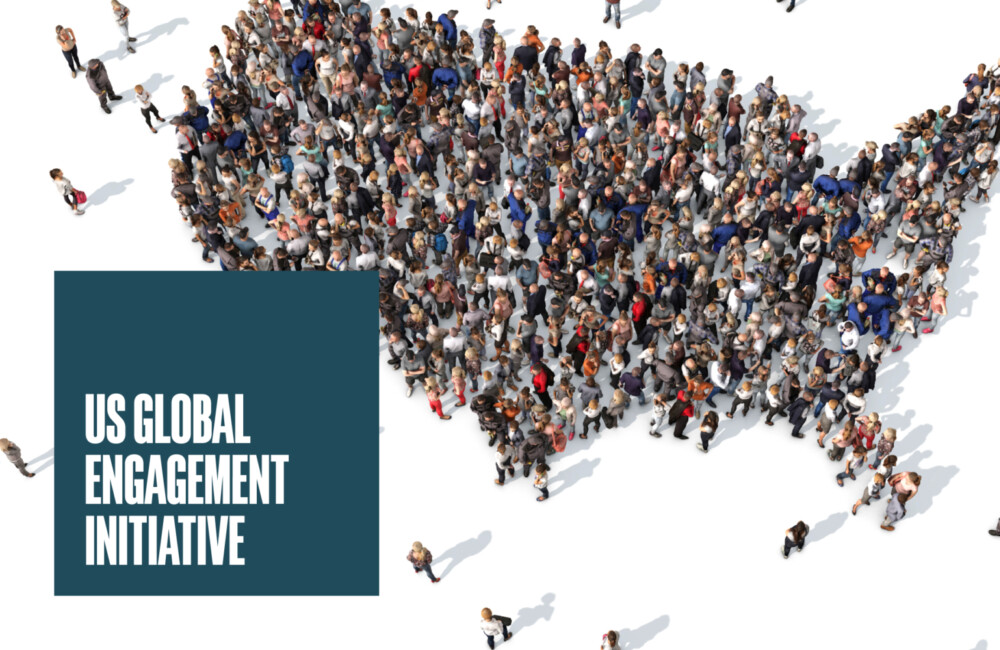Framing ethical perspectives
Multilateralism refers to a group of nations working together for a common goal. It is at the heart of international relations as nation-states form alliances with like-minded countries to take on global issues, such as climate, emerging technology, inequality, and collective security. Carnegie Council sees multilateralism as essential to generating solutions to global problems and a critical component of an ethical present and future.
Featured Multilateralism Resources
Inclusivity, AI & climate governance, and more
FEB 27, 2024 • Video
A Carnegie Council Conversation with the UK Home Secretary
MAR 28, 2024 • Video
Unlocking Cooperation: The Global South and Global North
In the inaugural panel of the "Unlocking Cooperation" series, Ramu Damodaran leads a discussion on forging a path forward for Global South/North collaboration.
OCT 18, 2023 • Video
Unlocking Cooperation: A Global Ethics Day Special Event
In this keynote event for Global Ethics Day 2023, Carnegie Council President Joel Rosenthal led a conversation on the psychology behind cooperation; ways that states, institutions, ...
Subscribe to the Carnegie Ethics Newsletter for more on ethics and international affairs
Related Initiatives
Model International Mobility Convention
The primary goal of the Model International Mobility Convention (MIMC) is to formulate new rules for migration and asylum that can benefit both migrants and refugees as well as their states of origin, transit, and destination.
Carnegie Ethics Accelerator
The Carnegie Ethics Accelerator is a new kind of incubator designed to empower ethics in the face of swiftly evolving challenges in technology and public policies.
Explore Our Multilateralism Resources

JUN 4, 2010 • Article
Book Review: Ethics & International Affairs: A Reader, Third Edition
"...this is a fantastic, easily accessible and well-written series of contributions," writes Brent J. Steele. "...these are selections from some of the most serious, vibrant, ...

JUN 3, 2010 • Podcast
The End of the Free Market: Who Wins the War Between States and Corporations?
Ian Bremmer demonstrates the growing challenge that state capitalism will pose for the entire global economy, and what free market nations must do to protect ...
MAY 28, 2010 • Podcast
Global Ethics Corner: After the War on Terror
Will the next dominant international conflict be between state capitalism and free market capitalism? Will it supplant the war on terror? What do you think?

MAY 27, 2010 • Article
Dealing with Iran: "Missed Opportunities" and "Holding Contradictory Ideas at the Same Time"
How, ask David Speedie and Gary Sick, can we move the U.S.-Iran dialogue beyond the current mutually recriminatory stalemate?
MAY 26, 2010 • Podcast
"The End of the Free Market:" Devin Stewart Interviews Ian Bremmer
In a discussion about his latest book, Ian Bremmer analyzes the troubled relationship between the U.S. and China, and the rise of what he ...
MAY 7, 2010 • Podcast
Global Ethics Corner: The U.S.: Shedding Hegemony with Grace
Should the U.S. shed some global ambitions and responsibilities? Or, is America's global role simply too important, both to the U.S. and the ...
MAY 7, 2010 • Podcast
China in the 21st Century: Devin Stewart Interviews Jeffrey Wasserstrom
In this lively discussion, topics include China's diversity, its "net nanny" approach to the internet, and why China and the U.S. are more alike ...

APR 30, 2010 • Article
Rise of the Rest
The Council's "Rise of the Rest" project focuses not on decline of existing powers but on the emergence of others. The U.S. should accept ...

APR 26, 2010 • Article
Pursuing a "Syrian Strategy" for Arab-Israeli Peace
A Syrian-Israeli Peace Treaty brokered by the U.S. could create the conditions for the kind of confidence-building measures between Israel and the Palestinian National ...
APR 16, 2010 • Podcast
Global Ethics Corner: The Irony of Nuclear Weapons?
This short video on ethics asks: Are nuclear weapons a necessary evil? Is it better to live in a world with nuclear deterrence or one ...




